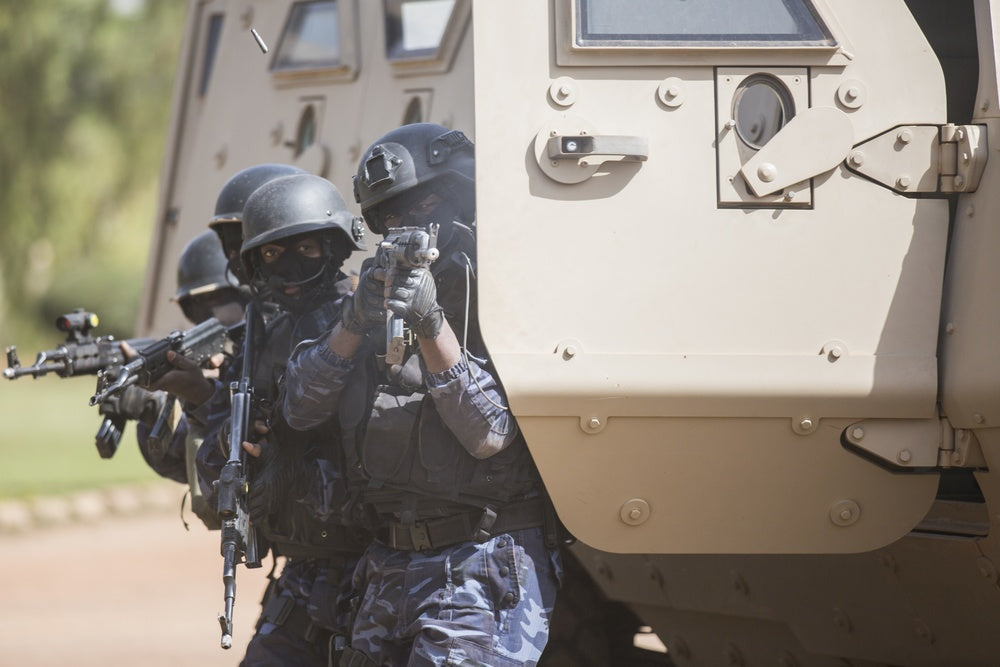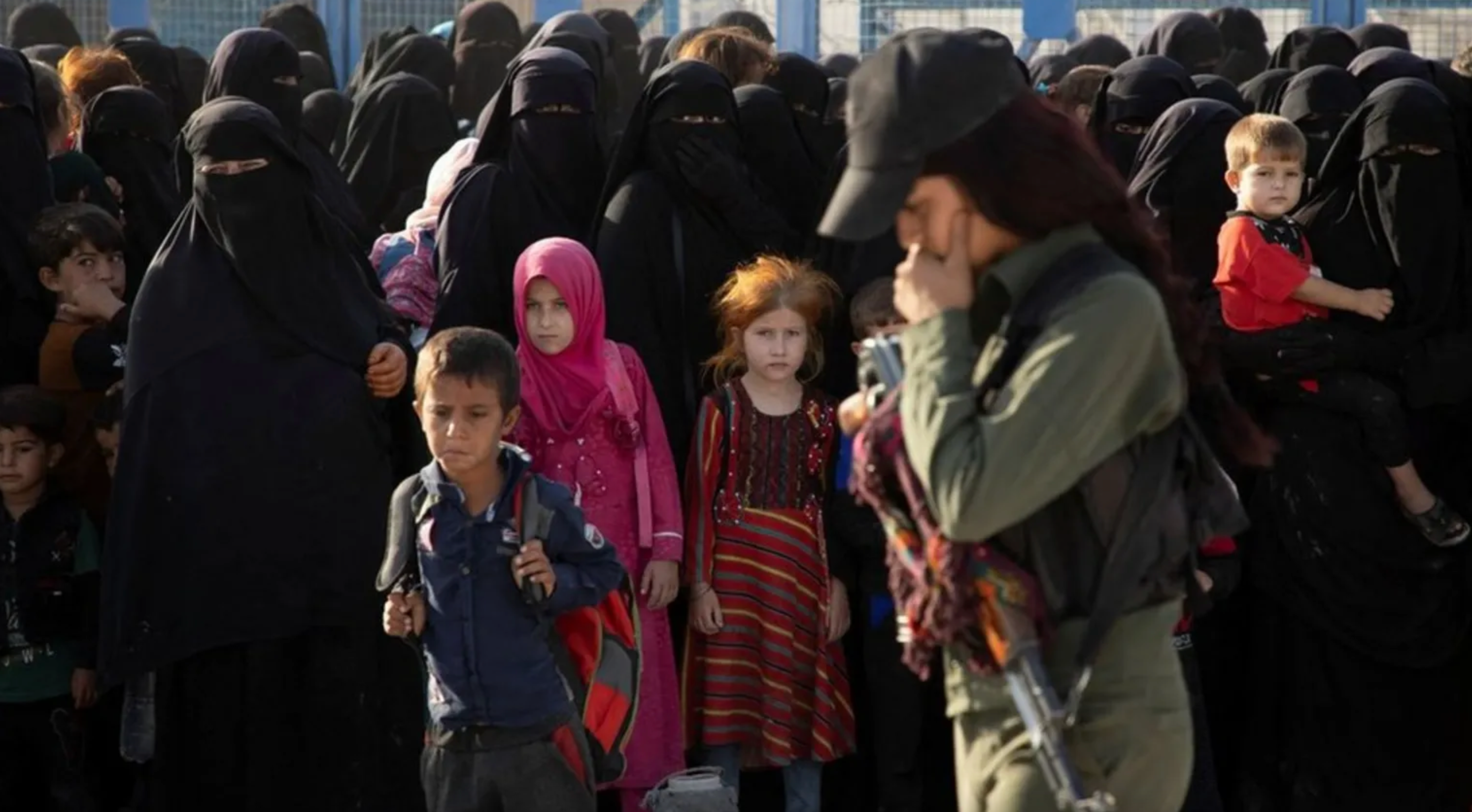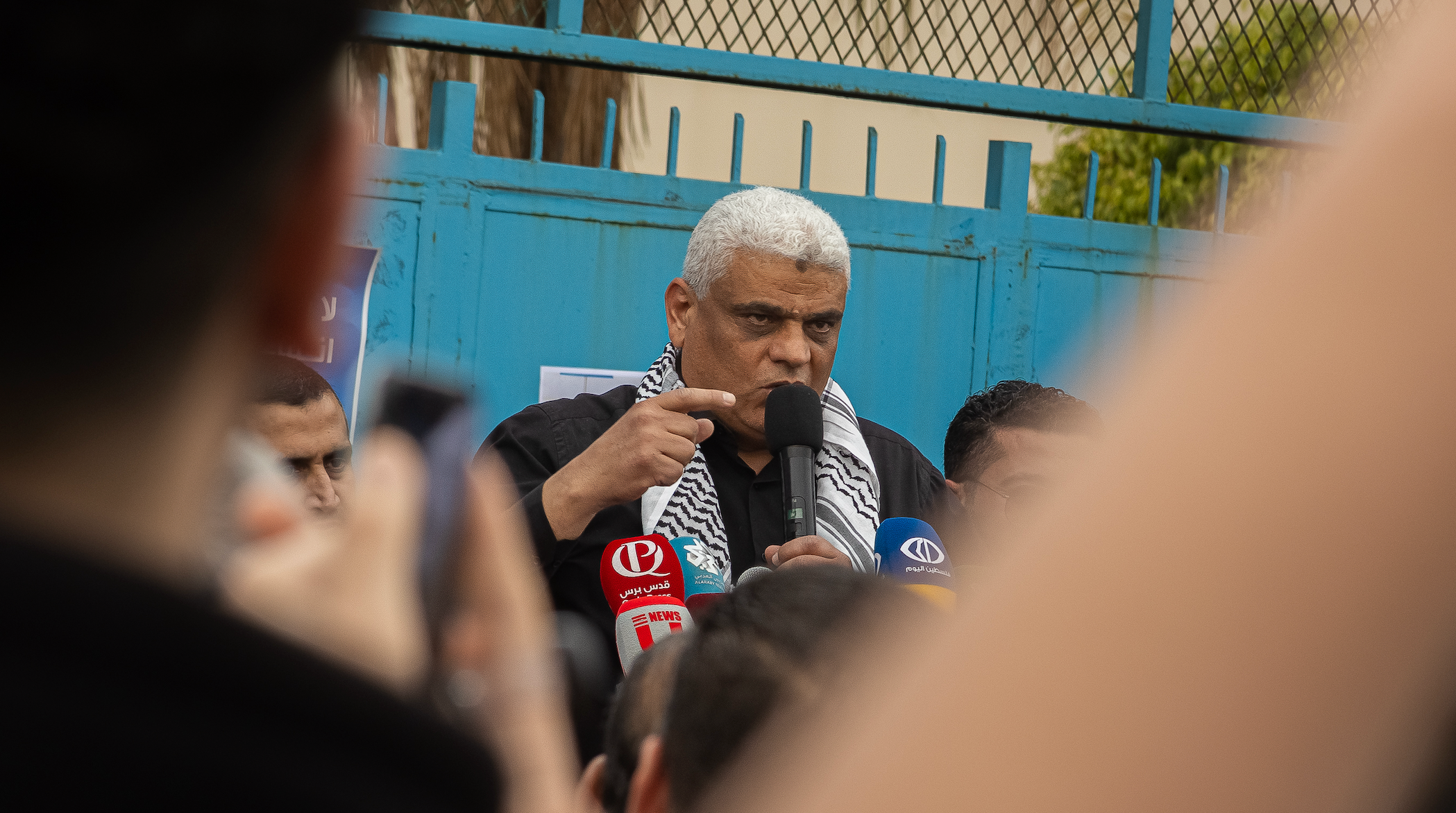
Explainer: Burkina Faso
PHOTO CAPTION: A Burkinabe police officer with the Special Intervention Unit (SIU) fires his AK rifle during a simulated terrorist attack as part of exercise Flintlock 2019 in Ouagadougou, Burkina Faso, Feb. 27, 2019. (U.S. Army photo by Staff Sgt. Anthony Alcantar via U.S. Defense Visual Information Distribution Service)
BY GABRIEL FANELLI
Seven successful coups and three failed attempts have defined the political landscape of Burkina Faso since 1966. Now run by Ibrahim Traoré and his junta, the erstwhile member of the Economic Community of West African States (ECOWAS) has been the target of brutal terrorist attacks since February 2024. Seven separate attacks by infamous al-Qaeda affiliate JNIM (Jama’a Nusrat al-Islam wa al-Muslim) and Islamic State offspring ISGS (Islamic State in the Greater Sahara) have left hundreds of civilians slaughtered across the country. These groups spilled over into Burkina Faso from neighboring Sahel powerhouse Mali, who along with Niger and Burkina Faso decided to exit ECOWAS earlier this year. If this is your first time hearing of Burkina Faso, here is what you need to know to put it all in context.
Burkina Faso is one of the most fascinating countries within the Sahel, who’s very name is a testament to its foundational commitment to multiculturalism. Burkina is the Mooré word for “honorable people” and Faso is the Dyula word for “fatherland.”
Mooré and Dyula are two of the 19 languages that nine separate ethnic groups speak – the largest group being the Mossi which makes up half the population at just over one million people. Burkina Faso is 60% Muslim and 30% Christian, with the rest following some sort of animist tribal religion. Burkina Faso is also famous for its past revolutionary leader, Thomas Sankara, who was assassinated in 1987. Sankara, a pan-African Marxist is famously called the Che Guevara of Africa. His replacement, Blaise Compaoré became the longest serving president of Burkina Faso, and his efforts to his 27-year long rule directly led to the 2014 uprising.
The French called Burkina Faso “French Upper Volta” and used it as a springboard from the Sahel’s coastal states to their larger desert colonies of Niger and Mali. The three countries have been economically interdependent since the 1970s under an entity known as the Liptako-Gourma Authority, which set up a regional framework to develop the shared cross-border resources, from mining and agriculture to livestock herding. The three countries established a regional joint military task force in 2017 to combat terrorism and insecurity in the region. Ibrahim Traoré was already a decorated lieutenant in the Burkinabe Army at this point, having fought in several counterinsurgency campaigns and in a UN peacekeeping force known as MINUSMA (United Nations Multidimensional Integrated Stabilization Mission in Mali) where he faced the throngs of Tuareg rebels trying to take over Mali.
In a nod to the fact that Africa overall has the youngest average age anywhere in the world, Traoré is only 36 – making him the youngest presidential figure in the world. Assuming office in October 2022 in the latest successful coup, he runs the government like a military unit under the banner of the Patriotic Movement for Safeguard and Restoration. He is fiercely anti-Islamist, so much so that many human rights groups have accused the Burkinabe government of executing civilians accused of collaborating with jihadist insurgents. Similarly, JNIM and ISGS execute people for refusing to convert to Islam and for being accused of working with government forces. Those who simply wish to live their life without incursion from government or from terrorism are hard pressed to choose a side, a gamble with deadly consequences.
In August 2024 just outside the town of Barsalogho, Traoré’s junta forced residents to dig trenches to prevent impending terrorist attacks. Instead, they ended up digging their own graves as militants gunned down hundreds of residents who simply fell onto one another in the trenches they dug in the days leading up to the attack. Estimates of the number of dead have ranged from 150 to north of 400. The Archdiocese of Ouagadougou condemned the junta’s response to the attack, which was no response at all. Father Jean Emmanuel Konvolbo said, “To persist in silence and inaction is to contribute to the extinction of humanity at the heart of every human being.”
Since his assumption of command, Traoré has had dozens of activists, journalists and opposing politicians abducted, tortured, and disappeared for their anti-junta statements and stances; all to prevent his own rule from succumbing to another inevitable coup. No matter how hard he tries to silence his critics, his regime cannot withstand more mass casualty attacks before the general population revolts, demanding a leader that can protect them.
Traoré, like his Malian and Nigerien counterparts have thrown the French out of their countries and replaced them with Russia. Pro-Russian graffiti and flags are seen all over Ouagadougou, and a radio show called Russia Time plays on Burkinabe airwaves. Putin held a Russia-Africa summit in July 2023 where he made promises to African nations to rectify food insecurity issues as well as combat the persistent Islamist threat. In January of this year, Putin donated 25,000 tons of wheat as a show of good faith for future economic stimulus.
The primary reason for courting Russia is not food insecurity though, but actual insecurity. Mali, Burkina Faso and Niger have all deemed France as an ineffective security partner who has failed to curb any Islamist attacks in recent years. Now, all French and US Troops have left Niger and Ouagadougou. Russia is ready and willing to replace both and promise Burkina Faso tangible results – in exchange for access to natural resources just like they have done in the Central African Republic and Sudan.
Since late 2023, hundreds of Russian soldiers, mercenaries and military advisors have called Ouagadougou home. Russia’s presence in Burkina Faso is indicative of a growing Russian presence in the Sahel that has already replaced US and French hegemony. The nations of the Sahel are quickly turning into the new Eastern Bloc, and Great Power Competition (GPC) in Africa is now a Russian win on the security front. The US must find ways to rethink its approaches to diplomatically influence African nations in order keep a foothold in the continent.












